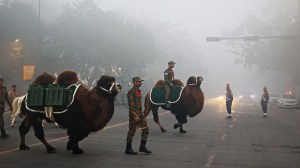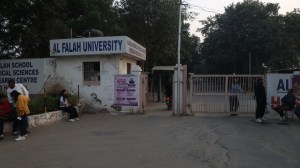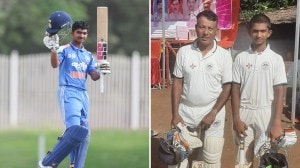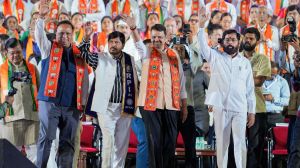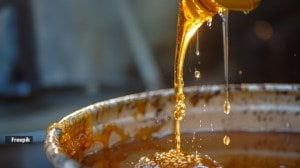Biding their time
Iraqis mourned on Saturday the slaying of a leading Shi8217;ite Muslim cleric and scores of his followers as they came out of the Imam Ali ...

Iraqis mourned on Saturday the slaying of a leading Shi8217;ite Muslim cleric and scores of his followers as they came out of the Imam Ali Mosque on Friday, killed in a car bomb attack which dealt a major blow to US efforts to pacify Iraq.
An AP report quoting a senior Iraqi police official said four men, said to have connections with the Al Qaeda, were arrested in connection with the bombing. The official said the four men 8212; two Iraqis and two Saudis 8212; were caught shortly after the blast.
The police official, who lead the investigation and interrogation of the captives, said the prisoners told of other plots to kill political and religious leaders and to damage vital installations such as electricity generation plants, water supplies and oil pipelines.
The chief pathologist of a local hospital said the death toll from Friday8217;s attack stood at 87, with more than 200 wounded.
Meanwhile, US forces have also detained three people in connection with the attack, a US Military officer said on Saturday. Immediately after the attack, local people turned over to US troops two people who they believed were outsiders, Lieutenant Colonel Chris Woodbridge said.
In Baghdad, more than 2,000 Shi8217;ites marched to lament the killing of Ayatollah Mohammed Baqer Al-Hakim, leader of Supreme Council for Islamic Revolution in Iraq SCIRI.
Thousands of people thronged the streets outside Imam Ali mosque on Saturday, some carrying coffins wrapped in black shrouds with verses from Koran.
The mosque contains the tomb of Ali, the son-in-law and cousin of Prophet Mohammed, the founder of the Islamic faith. Some people reached out and touched the wreckage of cars hit by the blast as they passed by. 8216;8216;There is no God but God,8217;8217; one crowd of people chanted. 8216;8216;They did this at the door of the tomb,8217;8217; they said.
8216;8216;We survived 30 years of Saddam to be murdered like this,8217;8217; asked Haidar, who had come to the mortuary to identify his brother8217;s body. Toby Dodge, an Iraq expert at Britain8217;s Warwick university, said the Najaf attack was a blow to the occupiers8217; efforts to bolster moderate Shi8217;ites.
Washington, facing new questions at home over the wisdom of occupying Iraq in defiance of many of the US8217;s closest allies, insisted that the latest attack would not deter it from efforts to stabilise and rebuild Iraq.
8216;8216;We remain resolved to defeat terrorism and continue to work to bring a better life for the Iraqi people,8217;8217; White House spokeswoman Claire Buchan said.
Hours after the Najaf bombing, a car exploded near the main British military base in the southern city of Basra. There were no casualties and the British military later said the blast was the result of a dispute between local people.
Meanwhile, with the security situation worsening in iraq, UN plans to withdraw 90 per cent of its international staff stationed there, leaving only about 40 to 50 essential personnel, UN officials said. The reassessment of staff deployment began immediately after truck bombing of the UN headquarters in Baghdad on August 19.
- 01
- 02
- 03
- 04
- 05








